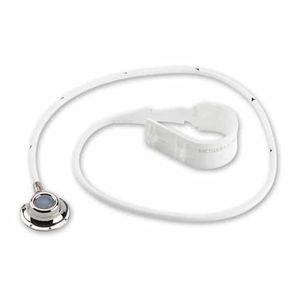
- Secondary care
- Gastroenterology
- MID - Medical Innovation Developpement
Gastric bypass gastric calibration ring MIDCAL™

Add to favorites
Compare this product
Characteristics
- Application
- gastric bypass
Description
Gastric bypass is one of the most frequently performed operations in the world. It is known for its efficacy in terms of weight loss. However, after some years, the remaining stomach pouch can expand. This expansion, which increases the stomach volume, limits the effect of satiety. The quantity of food absorbed increases, and usually leads to weight regain.
CALIBRATION OF THE GASTRIC BYPASS
To avoid this expansion, a calibration ring, such as the MIDCAL ™, may be placed around the stomach. The stomach pouch remaining after gastric bypass is thus calibrated by the ring, and the risks of expansion are greatly reduced. Protecting the gastric reservoir in this way makes it possible to maintain the effect of satiety, and to limit the absorption of an excessive amount of food. Placement of a calibration ring like MIDCAL ™ must be done by a qualified surgeon with experience in weight loss surgery. Ask your surgeon if placement of a MIDCAL™ may be a good indication for you.
SCIENTIFIC RESULTS
The bypass calibration technique is a widely used technique that has been the subject of many publications, including publications showing efficacy in terms of weight loss. Surgical management of obesity is subject to indications. These may vary according to the country, and are regularly updated. Check with your specialised obesity centre that these indications give you access to this type of surgery.
MIDCAL TM CALIBRATION RING
The MIDCAL ™ is a non-adjustable gastric ring designed for gastric bypass calibration. It is made of medical-grade silicone, for long-term implantation.
VIDEO
Catalogs
MIDCAL
2 Pages
Other MID - Medical Innovation Developpement products
OBESITY
*Prices are pre-tax. They exclude delivery charges and customs duties and do not include additional charges for installation or activation options. Prices are indicative only and may vary by country, with changes to the cost of raw materials and exchange rates.






